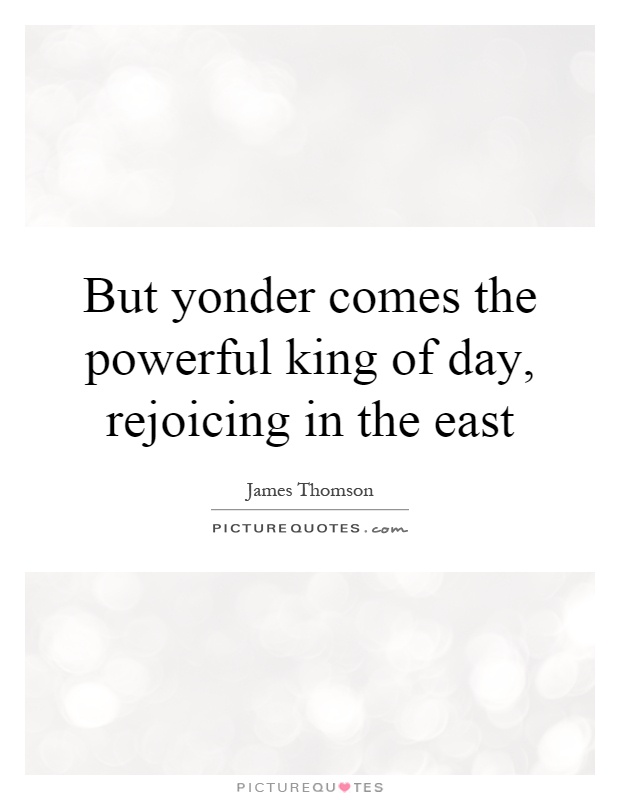But yonder comes the powerful king of day, rejoicing in the east

But yonder comes the powerful king of day, rejoicing in the east
James Thomson, a Scottish poet and playwright, is best known for his work "The Seasons," a series of four poems that celebrate the beauty and power of nature. In this context, the line "But yonder comes the powerful king of day, rejoicing in the east" can be seen as a reflection of Thomson's deep appreciation for the natural world and his ability to capture its majesty in his writing.Thomson's use of language in this line is both evocative and powerful. By referring to the sun as the "powerful king of day," he imbues it with a sense of regal authority and grandeur. The image of the sun rising in the east, "rejoicing," suggests a sense of joy and celebration, as if the sun itself is a living being that takes pleasure in its daily journey across the sky.
This line also reflects Thomson's belief in the cyclical nature of the natural world. The sun rising in the east is a symbol of renewal and rebirth, signaling the beginning of a new day and a fresh start. Thomson often used the changing seasons as a metaphor for the passage of time and the cycle of life, and this line is a perfect example of his ability to capture the beauty and significance of these natural rhythms.












 Friendship Quotes
Friendship Quotes Love Quotes
Love Quotes Life Quotes
Life Quotes Funny Quotes
Funny Quotes Motivational Quotes
Motivational Quotes Inspirational Quotes
Inspirational Quotes